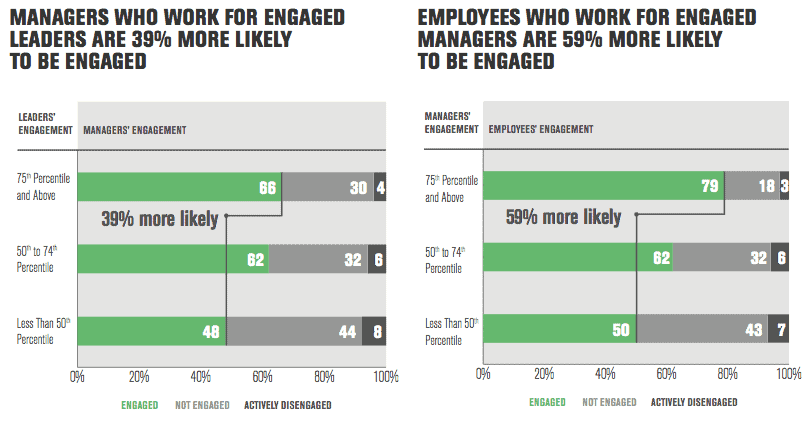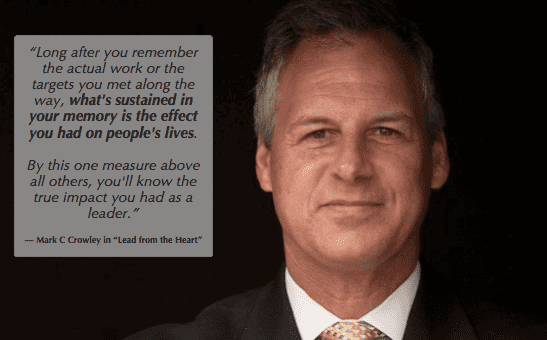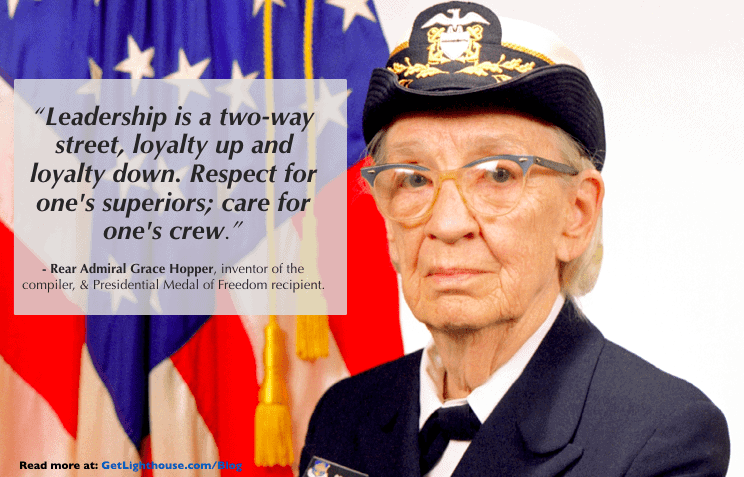"I'm a mid-level leader at my company and really unhappy. How do you know when to quit your job, when so many others depend on you?"
Quitting as a manager is always difficult, and it's not an easy decision. However, it's one of the many questions we've heard before.
In the process of growing Lighthouse and writing this blog, we have talked to a lot of leaders. Often, they share a challenge their facing. Many of our posts are inspired by those conversations.
While many of the questions are innocent ("How do I grow my people when there is lack of promotion opportunities?" or "What do I talk about in a 1 on 1?") Some of these challenges are much more sensitive, like the one above.
A number of managers and senior leaders have asked us forms of this question; what do you do when you're deeply unhappy in a job, and you're a senior leader?
Today we tackle that question, and how to transition out in a way that's good for your career, and the company you're leaving.
Table of contents:
- Resigning from Leadership: When is it time?
- When to Quit Your Job, if You're a Leader
- How to Quit as a Manager: Insights from Mark Crowley and Camille Fournier
Resigning from Leadership: When is it time?
When you're an individual contributor, if you're unhappy for too long, it's easy to just go get another job. You give your notice, help find and train your replacement, and all is well.
For better and for worse, when you rise in an organization, the stakes are much higher. While normally this is a good thing (more responsibility, compensation, and ownership), it has major drawbacks if you want to quit your job.
You cannot simply quit; you have a team, peers, and the greater organization that are counting on you in ways an individual contributor doesn’t have to worry about as much.
Let's delve deeper into why stepping down from a leadership position is often so difficult.
The Burden of Betrayal
When you choose to leave, there's a lingering fear of betraying the trust and loyalty your team has placed in you. Do they feel sold out or left behind?
If you’re a caring manager, you’ll have some concerns about who will lead them next and if they’ll do as good a job as you. You may also worry you’ll upset a senior leader or executive who believed in you and either hired or promoted you.
The Fear of Departure Cascade
Another major concern when quitting as a manager is the potential domino effect it may trigger. When a good leader leaves a company, there is a strong possibility that your team may leave as well, whether they follow you to your next company or go somewhere else.
Further, the departure of a respected leader can create a ripple effect culturally, as other employees see it as a sign they should leave, too. It’s difficult to predict how others will react, but the more visible your role is or how respected you are by others, the more likely you can unintentionally cause employees to leave in a wave.
The Weight of Broken Promises
When you were hired for your leadership role, you likely made commitments to the person who hired you. Perhaps you promised to lead the team through a specific project or to drive certain outcomes. Stepping away from your position may leave you feeling like you're breaking those promises and potentially damaging your relationship with a person who took a chance on you.
Potential Broader Fallout
Leadership positions come with a heightened level of visibility, both internally and externally. This is especially true if you are at an executive level.
When you quit your leadership position, there is a potential you’ll create ripples not only with employees, but also with clients, customers, or investors who know you. When you have a high visibility role, there's a valid concern that your exit can negatively impact the company, making it even harder to ultimately leave, even if you’re unhappy.
The Perception Problem
Quitting as a manager can inadvertently send the wrong message to your potential future employers. It may raise questions about your ability to handle challenges and resolve organizational issues effectively.
Depending on how long you’ve been in your current role, and the nature of your departure, future employers may wonder if you're someone who jumps ship at the first sign of trouble, rather than taking the initiative to address and overcome obstacles.
As you can see, there’s a lot to consider when resigning as a manager. It requires careful consideration of how it may affect your professional image and career trajectory.
It's not always fair, but that's part of the deal of becoming a senior leader with more and more responsibility.

Staying isn't always the right choice, either
Even if you're willing to "grin and bear it," or sticking with it because of some of the aforementioned concerns, that may not be a good choice, either.
Being an unhappy manager has a significant impact on those around you.
Gallup calls this the Cascade effect:

How you feel absolutely will trickle down to the team below you, affecting their morale and engagement.
Whether you stay or go, being unhappy as a manager is no place to be. You're affecting your team either way.
Understanding the profound impact of our emotional state on the teams we lead, it's essential to heed Camille Fournier's advice for senior leaders.
"Senior leadership is a hard job. It requires the stamina to deal with a lot of painful setbacks, interpersonal challenges, and stressful decisions.
But that doesn't mean that you have to let yourself get burned out completely.
Make a point of regularly checking in with yourself on how you are feeling about work, and let that guide you.
If you spend 3, 6, 9 months miserable on a regular basis due to your job, you are risking burnout. Once you've gone to the point of burnout, it's hard to bounce back without taking some time off work completely. Your team deserves a leader who can give them the right positive attention and energy."

When to Quit Your Job, if You're a Leader
Knowing what a difficult choice it can be whether you stay or not, we want to help you with this.
Unfortunately, people rarely talk about this publicly, so we sought out two veteran, expert leaders to help: Camille Fournier and Mark C Crowley.
- Crowley is the author of Lead from the Heart and was a senior leader in the world of finance before that. You'll see in his answer below how leading from the heart influences his advice on this tough decision.
- Fournier is the author of The Manager's Path and was CTO of Rent the Runway. You'll find the same direct, structured advice that is throughout her book we recently wrote about.
If you're having a hard time in your leadership role, these answers can help you think about what's best for you, your team, and the company you're working for. Deciding when to quit your job is a deeply thoughtful process, like these responses.

When to Resign from a Leadership Position: Mark Crowley’s advice
"I may be old-school, but I still very much value employee loyalty, and see it as a sign of a person's immaturity or selfishness when their resumé reflects a lot of moving around.
Shakespeare said "past is prologue,” and someone who hasn't stayed working for any one company very long is all but shouting they won't likely stay with you for any meaningful amount of time either. I'm not inclined to hire someone who hasn't proved an inclination to be resilient, persistent and committed at their previous jobs.
As someone who values loyal people, I have always been one to show loyalty back. If I'm treated well, given opportunities to grow and to do meaningful work — and to work for an organization whose values I respect — I'm personally inclined to stay on and grow roots there."

"But there are two primary reasons where my leaving a company would make sense — while still aligning to these values.
The first would be if the company changed in some way, or if I was given a boss who treated me disrespectfully, or failed to support my needs in important ways.
We've all had bad bosses, so I'm not speaking about running away at the first sign things aren't working well. But if the organization moves in a significantly different direction, or if my boss can't demonstrate that they value me and want me to stay — well, those are clear reasons to evaluate your options.
The other reason for leaving, of course, is when someone recruits you for an opportunity that's just too great for you to pass up.
Leaving, in these instances, has little to do with the current company, and far more to do with a chance to do work that really challenges you and makes your heart sing."
- Mark C. Crowley is the author of Lead From The Heart: Transformational Leadership For The 21st Century. You can connect with him on LinkedIn here.

When to Quit as a Manager: Camille Fournier’s advice
"The decision to leave a company when you are in a senior leadership position is usually a pretty agonizing one.
I think the short answer is that, if you want to put yourself in the position of being able to leave gracefully, you need to have a successor in mind."
Succession planning is key
"There is a reason that bigger companies push their senior leaders to think about succession planning. You may need to groom people for months or years to get them ready to take over your job.
If you haven't been working on teaching those skills to your potential successors, there is no way to leave without causing disruption.
It's pretty common in tech for startups to try to hire externally to replace leaders as they go. This works sometimes, but more often it causes massive cultural clashes and a lot of attrition as the external person changes the shape of the team and often brings in some of their own people.
So if you truly care about leaving your team in the best place possible, make the case for why someone who reports to you now can take over your job when you leave."
-Camille Fournier is the author of The Manager's Path: A Guide for Tech Leaders Navigating Growth & Change. You can follow her on Twitter here.

How to Quit as a Manager: Insights from Mark Crowley and Camille Fournier
When you are quitting as a manager, you need to plan your exit carefully and thoughtfully. You don’t want to leave any problems or bad feelings behind you if you can help it.
But the question is how do you do it? Let’s take a look at what two of our favorite veteran leaders shared as the best approaches:
Mark Crowley emphasizes the importance of departing on positive terms. He believes in providing more than the standard two weeks' notice, as this will facilitate a smooth transition for the company and your team. According to Mark Crowley, "Leaving a company on the best of terms isn't just an indication of someone's character, it's a sign they were grateful for all the opportunities that company gave them, and that they chose to honor that all the way to the end."
Camille Fournier highlights the significance of succession planning when leaving a senior leadership role. She stresses the value of grooming potential successors within the organization and building strong relationships with team members. Camille advises, "If you truly care about leaving your team in the best place possible, make the case for why someone who reports to you now can take over your job when you leave."
Considerations for a successful exit include offering a longer notice period to facilitate knowledge transfer and minimize disruption. Mark Crowley suggests, "I'd rather a company feel they lost something when I left, than to have my final few weeks unnecessarily sully how I'm remembered there. So even if I'm not treated well those final days, my doing the right thing has always felt best."
Collaboration with the organization to find the right replacement, if internal successors are not readily available, is also crucial for a seamless handover. Camille Fournier thinks that, "If there's no one who reports to you who is ready, you can offer to help with the search for your replacement. Depending on your relationship with the CEO and other execs, this may or may not work out, but it's worth a shot."
By incorporating these insights and strategies into your resignation, you can effectively navigate the transition as a manager, ensuring a smooth and professional leaving your leadership position.

Choose when to quit your job wisely
Deciding to leave is never an easy decision. How you handle it can define your career.
Done well, you'll have references and loyal team members. Handled poorly, you can burn bridges and ruin otherwise great working relationships.
If you're thoughtful about the process, and work hard on your transition, you can avoid many of the biggest pitfalls. Take Camille's and Mark's advice on when and how to quit as a manager as a starting point when you face this crossroads.
Why do leaders hand in their resignations?
There are several reasons why leaders hand in their resignations:
- Career Advancement: Seeking new challenges and opportunities for growth is attractive, especially if there’s no room to advance at your current job.
- Misalignment: When your values or vision no longer align with the organization.
- Work-Life Balance: You may prioritize your well-being and family commitments over a job that demanded too much from you.
- Organizational Changes: Shifts in leadership, strategy, or structure may cause a leader to no longer want to work at a company.
- Burnout or Stress: Managing the demands of their position can overwhelm someone to the point of needing to leave for their health and well being.
Leaders may choose to resign for any of the above reasons, or a combination of them, while also carefully considering the impact their departure may have on their team and the company as a whole.
Is stepping down from a management position bad?
Stepping down from a management position is not inherently negative. It can be a healthy and important decision for you if you need a change to further your personal growth, achieve a better work-life balance, specialize in a new area, explore new opportunities, or better align with your leadership style and values.
Ultimately, stepping down could be seen as a potentially positive choice for your health and well being as long as you leave in a professional and thoughtful manner.
What not to say when you resign?
Here are the don’ts that you should avoid when you are resigning:
- Negative Criticism: Refrain from expressing harsh or negative criticisms about the company, your team, or your colleagues. There’s no reason to burn bridges.
- Blame Game: Avoid blaming others for your decision to resign. Take responsibility for your own choices and focus on the future instead of dwelling on past problems.
- Immediate Departure Demands: Unless there are exceptional circumstances, it's generally best to provide appropriate notice and facilitate a smooth transition. Demanding an immediate departure without proper handoff may disrupt operations and strain relationships.




